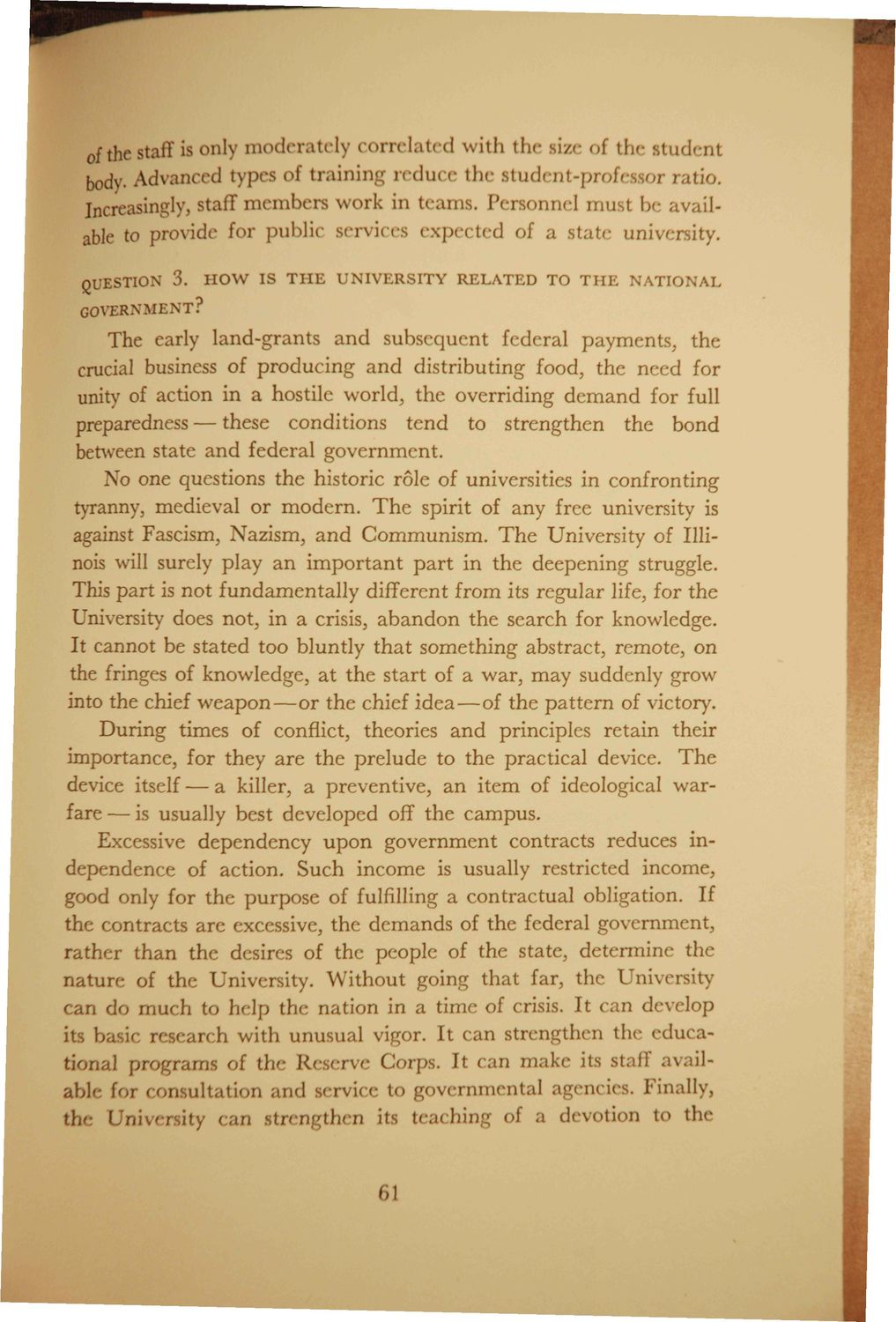| |
| |
Caption: Book - Four-Year Report of UI President (1950)
This is a reduced-resolution page image for fast online browsing.

EXTRACTED TEXT FROM PAGE:
of the stalT is only moderately corn luted with the Size of the student body. Advanced types of training r duct the Student-professor ratio. Increasingly, stall members work in teams. Personnel must be available to provide for public services expected of a state university. QUESTION 3 . GOVERNMENT? H O W IS T H E UNIVERSITY RELATED TO T H E NATIONAL The early land-grants and subsequent federal payments, the crucial business of producing and distributing food, the need for unity of action in a hostile world, the overriding demand for full preparedness — these conditions tend to strengthen the bond between state and federal government. No one questions the historic role of universities in confronting tyranny, medieval or modern. T h e spirit of any free university is against Fascism, Nazism, and Communism. T h e University of Illinois will surely play an important part in the deepening struggle. This part is not fundamentally different from its regular life, for the University does not, in a crisis, abandon the search for knowledge. It cannot be stated too bluntly that something abstract, remote, on the fringes of knowledge, at the start of a war, may suddenly grow into the chief weapon—or the chief idea—of the pattern of victory. During times of conflict, theories and principles retain their importance, for they are the prelude to the practical device. T h e device itself — a killer, a preventive, an item of ideological warfare — is usually best developed off the campus. Excessive dependency upon government contracts reduces independence of action. Such income is usually restricted income, good only for the purpose of fulfilling a contractual obligation. If the c ntracts are excessive, the demands of the federal government, rather than the desires of the people of the state, determine the nature of the University. Without going that far, the University can do much to help the nation in a time of crisis. It can develop its basic research with unusual vigor. It can strengthen the educational programs of the Reserve Corps. It can make its staff available, for nsultation and service to governmental agencies. Finally, the Uni\ rsity can strengthen its teaching of a devotion to the 1
| |